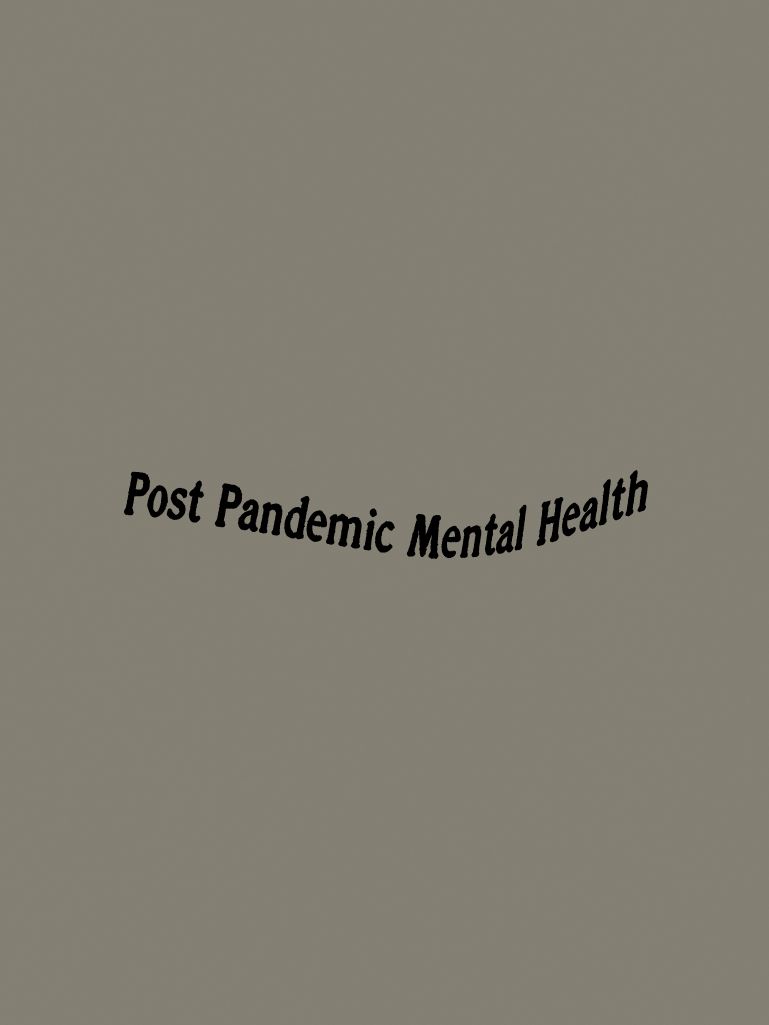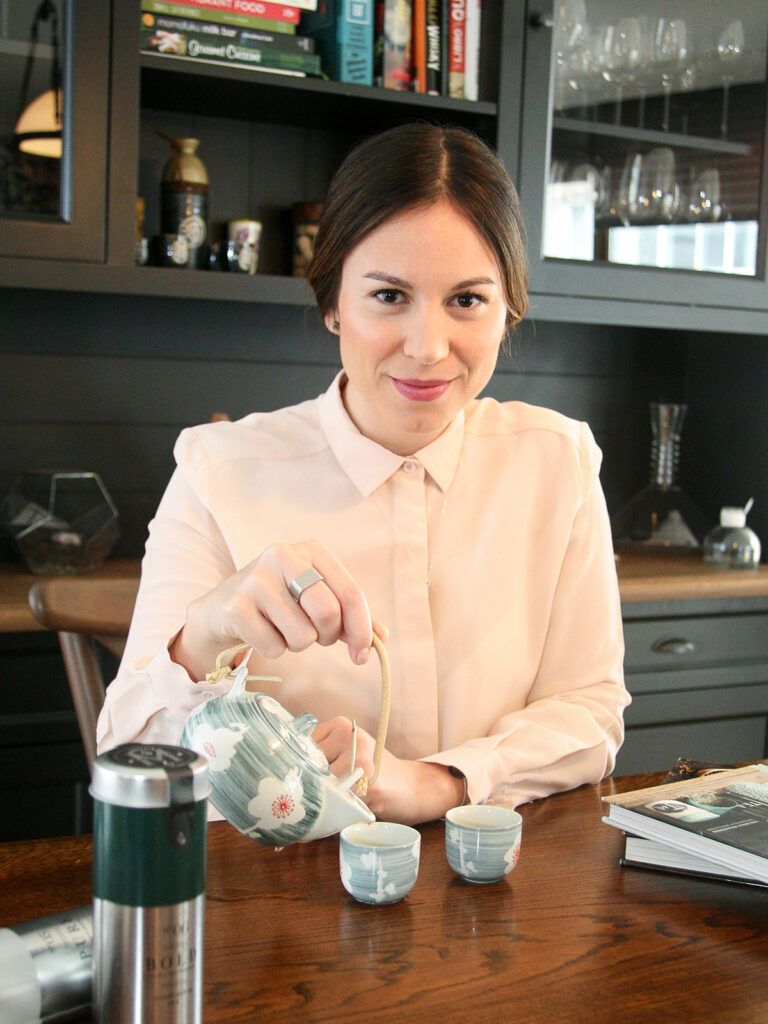
Stories
How To Support Your Mental Health Post-Pandemic
Navigating any aftermath can be challenging, but also healing. We put together a guide featuring tools, tips, books, science and empathy to help carry you through, and remind you that we are all alive at the same time, facing this experience together.
Text Defne Sarıçetin
How to describe the past two years? Challenging, life-changing, a laughing-crying emoji? While our individual experiences may differ, the exceptional nature of events left many feeling unequipped to cope with the toll of lockdowns and so much change. Whether dealing with anxiety and depression, trying to navigate re-socializing, or going back to the office again, there are plenty of tools to support your mental and emotional well-being. And you are definitely not alone in how you’re feeling; as the entire world is operating under new normals, we’re all feeling the impact on our mental health.
Mental Health 101
Mental health, also referred to as emotional health or well-being, is just as important as good physical health. The Mental Health Foundation describes being mentally healthy as not simply meaning you don’t have a mental health problem. It means you can make the most of your potential, cope with life, and play a full part in your family, workplace, community, and among friends.
Mental health problems can include anxiety, depression, post-traumatic stress disorder, phobias, eating disorder, personality disorder, and more. According to MFH, the most common issues globally are anxiety and depression, with around 1 in 10 people affected at any one time. Data from The Office for National Statistics in the UK estimates 1 in 5 adults saying they experienced some form of depression during the pandemic. This rate has doubled since the pre-pandemic numbers.
Experiencing feeling down, stressed, or frightened at times is normal for everyone. While most of the time those feelings pass, sometimes they develop into a more severe problem which can happen to any one of us. If needed and when ready, speak to your doctor or mental health professional.
Wonder Tip: Creating a morning routine you enjoy, such as going for a quick walk or having a warm drink while listening to a podcast, can give your day structure and a positive mindset. On Purpose with Jay Shetty includes conversations with insightful figures and has the effect of shifting your perspective. The host Shetty, also the author of Think Like A Monk, used to be a monk and his purpose now is to make wisdom go viral.
The Brain-Body Connection
Recent scientific research increasingly shows how our physical and mental health is intertwined. Our hormones, moods, emotions, gut, and brain all make up an interconnected whole that drastically affects how each functions. Dr. Nicole LePera, a clinical psychologist, known on social media as The Holistic Psychologist, says, “vitamin and nutrient deficiencies impact neurotransmitter function, which directly impacts mood, emotions, and thoughts.”
Dr. LePera believes the future of mental health treatment will include more awareness around the gut and microbiome which play a crucial role in communication with the brain and nervous system. Additionally, blood tests for nutrient deficiencies can be necessary, “as recent research links deficiencies in vitamin D, B, and omega-3 fatty acids to mental illness.” If possible, getting checked out for deficiencies and supplementing advised by a health professional can be incredibly beneficial. Antidepressants, alcohol intake, and chronic stress can also deplete nutrient levels from our bodies.
An integral part of coping with the challenges life throws at us is through bodywork. Stress, traumas, and unprocessed emotions can take a toll on our bodies and even create physical ailments over time. Bodywork doesn’t necessarily have to mean exercise. Short walks in nature, some stretching, or light activities all help. Even on days, you don’t feel like getting out of bed, aiming to move your body in some way can release dopamine and serotonin, which help improve and regulate your mood. Practices such as breathwork are great for coming back to your body, releasing pent-up energy, and calming down your nervous system.
Wonder Tip: The Calm app is free for basic features with breathing programs and even sleep stories voiced by Matthew McConaughey and Harry Styles, though that might not be everyone’s idea of relaxing! For further information on how trauma reshapes the body and brain and holistic healing, The Body Keeps The Score is an extensive read by Dr. Bessel Van Der Kolk, one of the world’s foremost experts on trauma.
Connecting To Yourself First
We all know the saying, “the most important relationship is the one you’ll have with yourself.” Taking just ten minutes out of your day to have a check-in with yourself can be life-changing in the long term. It can be hard to have more joy and purpose in your life if there is a lack of clarity around what brings you joy or what you want and need beyond societal programming. Cultivating more self-awareness is essential for creating a life that you enjoy. A disconnect from our true selves is often the cause of pain, shame, and dissatisfaction with life.
One way to be more in touch with our true selves is journaling, one of the most accessible forms of self-care. American Psychological Association reports that studies found journaling improves mindfulness, memory, and communication skills and leads to better sleep, a stronger immune system, more self-confidence, and even a higher IQ.
Another prominent tool for regulating disruptive thoughts and healthily processing emotions is meditation. Practiced for thousands of years, Mayo Clinic lists the modern benefits as reducing negative emotions, increasing creativity and patience, and gaining a new perspective on stressful situations. For novices, it may feel uncomfortable at first to sit still with your mind, but meditation is proven to aid stress reduction and relaxation over time. It might be a good idea to ask yourself why this is bothering you or what you think you might be avoided if it feels safe to do so.
Wonder Tip: There are always ways to adjust any practice to make it your own. Start somewhere that feels doable such as guided or walking meditations, using online journaling prompts, or turning to classics for wisdom and solace. Marcus Aurelius’s Meditations chronicles the philosopher emperor’s reflections and is a mind-altering read on living a happier, more virtuous life.
Resistance to Change and Neuroplasticity
The more self-awareness we cultivate, the more we might find the courage to align our lives authentically. Change can be desired or feared, but through understanding how our brain functions, we can optimize our capacity for it. Ever wondered why despite our best intentions, it can be so hard to stick with new habits? Dr. Ralph Ryback explains in Psychology Today how any type of change can go against the neural pathways that have become automatic to us, hence why we tend to fall back on our default behaviors when we try to implement changes. Showing a resistance to change may be part of how we are wired but so is adapting. Neuroplasticity, the brain’s ability to adapt and rewire itself, can continue developing throughout our lives — meaning you are always more than capable of evolving.
Dr. Tara Swart, a leading neuroscientist and senior lecturer at MIT, believes we have the power to change our lives simply by reshaping our minds. Her work suggests that if we can strip away our skepticism, the ancient tools of manifestation and visualization can effectively free us of self-limiting behaviors and help us become our truest, most authentic selves.
Most things that we want, such as health, happiness, wealth, and love, are governed by our ability to think, feel and act, therefore by our brain. Dr. Swart says we need to actively direct our brain to move away from prioritizing our unconscious biases. And instead, be more open, flexible, and courageous about pushing ourselves towards our goals and choices that feel new and even dangerous.
Wonder Tip: Dr. Tara Swart’s book The Source: The Secrets of the Universe, The Science of the Brain is an insightful guide with practical lessons on unlocking your mind and reaching your fullest potential. Some exercises to promote positive neuroplasticity can be learning a new language, traveling (which can even be a long walk through a new neighborhood or a hike), making music, and creating art.
Connection and The Bigger Picture
Just as nourishing yourself with vegetables and nutrient-dense food in your diet will improve your health, what we consume in terms of news, social media, and our conversations with the people in our lives also affect how our brain functions. Some useful tips to protect your mental well-being include being mindful of the time you spend on screens and unfollowing accounts that don’t contribute to your happiness.
Humans are social beings, and we need healthy relationships as well as a sense of belonging and community to thrive. According to Dr. Emma Seppala, Science Director of Stanford University’s Center for Compassion and Altruism Research and Education, social connection:
- Improves physical health and mental and emotional well-being,
- This leads to lower levels of anxiety and depression,
- Cultivates higher self-esteem,
- A stronger immune system and a 50% increased chance of longevity.
Dr. Seppala emphasizes that the benefits are not correlated with how many friends you have but instead come from your internal and subjective sense of connection — how connected to others you feel on the inside.
Wonder Tip: Renowned psychiatrist and psychoanalyst Engin Geçtan’s resourceful book Insan Olmak (Being Human) is an accessible must-read for self-awareness. Narrating the journey of the human condition from our mothers’ bellies and childhood to the individual’s relationship to society, Geçtan lifts the veil between our subconscious and the quality of our life.
It’s important not to make self-care or any healing journey another source of stress, especially during difficult times like what we’ve been collectively experiencing with the Covid-19 crisis. Wellness also means taking it easy on yourself if you find that you are triggered or overwhelmed. Seek professional help if you feel you can’t cope or things are getting worse. Take small steps every day, make time for the things that bring you joy and most importantly, be patient with yourself. Remember that you are important, and while people may not understand exactly how you feel, you are not alone.





